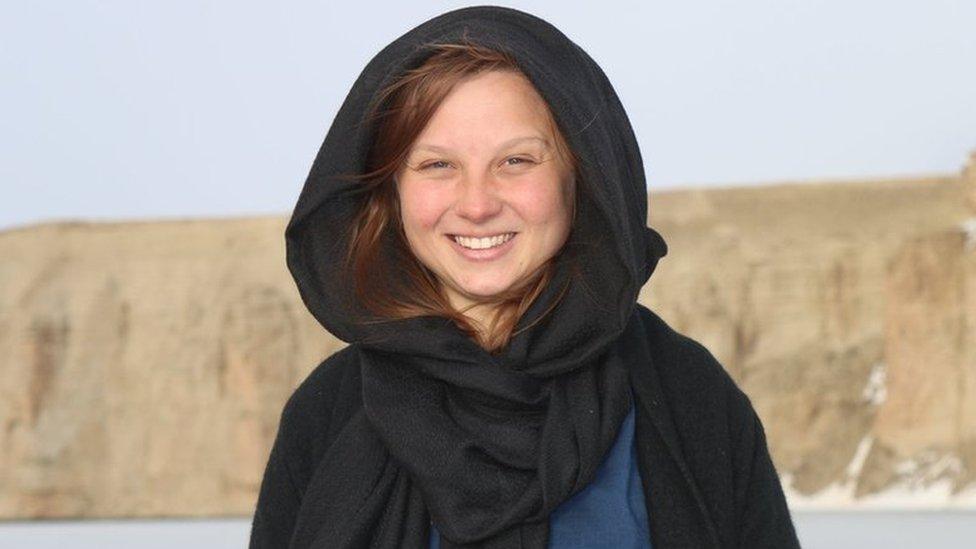Afghan interpreter who worked for UK begs PM for help
- Published
Afghan interpreter who worked for UK begs PM for "pathway to safety"
An Afghan interpreter who worked for the British army has begged the UK government to evacuate him and his family from Afghanistan.
Ahmed - not his real name - said he received permission to come to the UK last week, but a day later the Taliban seized control of the capital, Kabul.
He said he was now in hiding and would "face death" if the Taliban found him.
UK troops are continuing to evacuate British nationals and Afghans who are eligible to resettle in the UK.
Afghan interpreters and others who worked for the UK government can come to the UK as part of the Afghan Relocations and Assistance Policy (ARAP).
However, chaotic scenes have been reported outside Kabul international airport with access to it being controlled by Taliban militants, who are reportedly not permitting Afghans without documents or passports to enter.
Ahmed, who worked with British troops for three years, told the BBC he was initially rejected for the ARAP scheme in April. He appealed against the decision and last week received an email saying he was eligible for relocation.
He woke the next morning to find Kabul was under the Taliban flag. He said that he had been left stuck in a "horrible" situation.
"Life has ended for us when Kabul collapsed, we are just left behind in a dark room," he said.
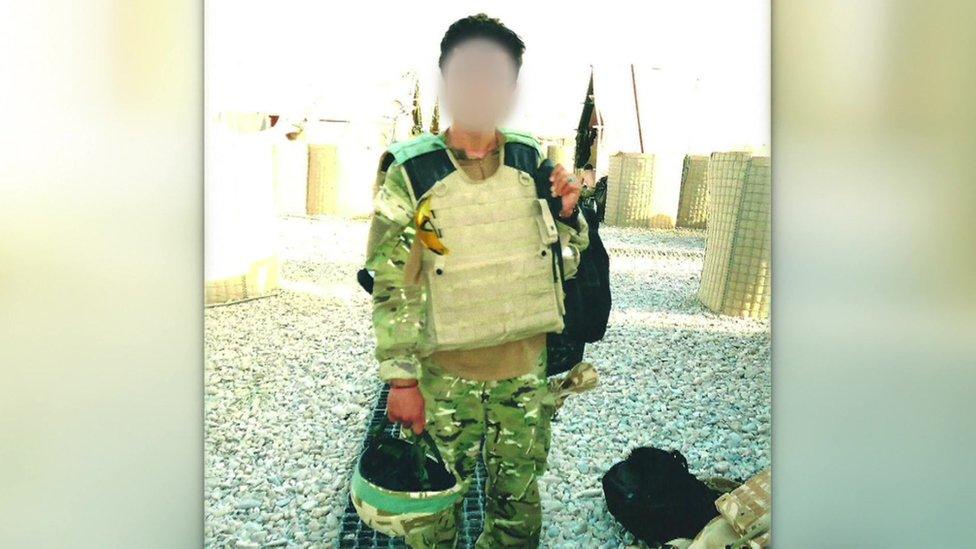
Ahmed worked for three years with British troops - who he describes as "his brothers"
There are fears that Afghans who worked with Western authorities or groups could be at higher risk of reprisals from the Taliban. The group has denied this, but Ahmed said he did not believe them.
"Taliban are not trustable… if they find me, there will be no mercy," he said. "I have done a lot of patrols, missions, shoulder to shoulder with British armies, like a family, like a brother.
"It's a major threat for me if I go out, they know me. There will be no mercy and I will face death."
Ahmed said that when he worked with UK soldiers, the Taliban used to target interpreters as they were the "eyes and ears" of the forces.
Asked what he would say to UK Prime Minister Boris Johnson about his family's situation, he said: "I just want him to provide a pathway to safety for me and my family. I beg him."
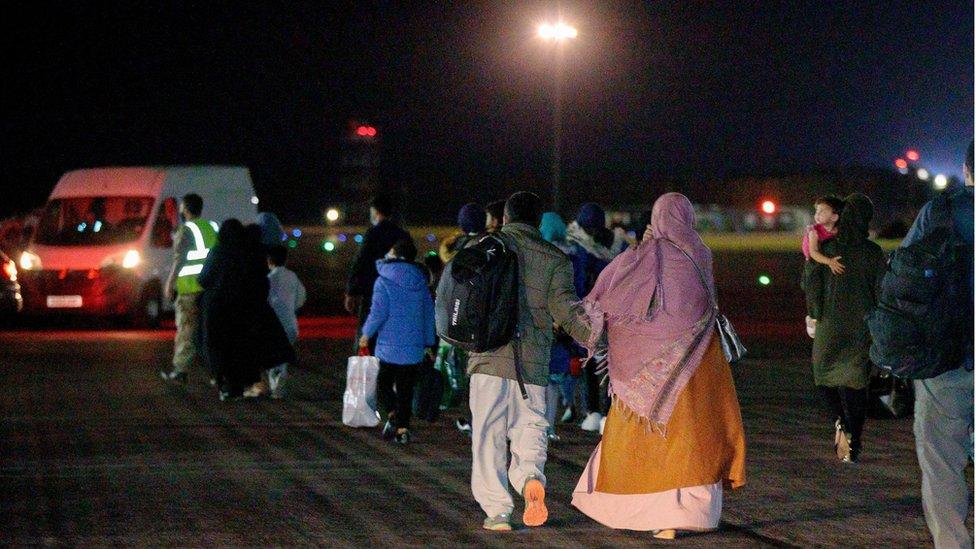
British nationals and Afghan evacuees have been arriving on RAF planes at Brize Norton
Half a dozen flights are due to arrive in the UK from Afghanistan in the next day or so, according to the Ministry of Defence. One landed at RAF Brize Norton in Oxfordshire in the early hours of Thursday morning. No details were given about how many people were on board, or who they were.
Downing Street however did not deny a report that one plane had taken off "almost empty" on Wednesday morning because people could not get through the airport.
The British ambassador to Afghanistan, Sir Laurie Bristow, said Foreign Office personnel were hoping to get "at least" 1,000 people out of the country every day - but warned there were "days, not weeks" left to complete the mission.
About 2,000 Afghan former staff and their families have come to the UK via ARAP this year, according to the Home Office, with a target of 5,000 by the end of 2021.
The UK government has also committed to take in up to 20,000 Afghan refugees over the next few years under a new resettlement scheme - including 5,000 this year.
Downing Street said the government would be encouraging international partners to emulate "one of the most generous asylum schemes in British history".
However, shadow foreign secretary Lisa Nandy was critical of the new scheme, telling BBC's Question Time it was "absolutely clear that 5,000 is too small a number over the next 12 months" and called for a "more generous offer" to be made.
Foreign Secretary Dominic Raab is due to speak on Thursday with fellow G7 ministers - which includes the US, Canada, Japan, Germany, France and Italy, along with the UK - to discuss international co-operation. The G7 leaders are also set to hold a virtual meeting next week.
On Wednesday, Mr Johnson faced a barrage of criticism from MPs across the political spectrum over the UK's role in Afghanistan, in an emergency House of Commons debate on the crisis.
The prime minister also spoke with his Italian counterpart Mario Draghi as he continued his efforts to bring the G7 together on its Afghanistan position.

Have you been affected by the issues raised in this story? Share your experiences and views by emailing haveyoursay@bbc.co.uk, external.
Please include a contact number if you are willing to speak to a BBC journalist. You can also get in touch in the following ways:
WhatsApp: +44 7756 165803, external
Tweet: @BBC_HaveYourSay, external
Or fill out the form below
Please read our terms & conditions and privacy policy
If you are reading this page and can't see the form you will need to visit the mobile version of the BBC website to submit your question or comment or you can email us at HaveYourSay@bbc.co.uk, external. Please include your name, age and location with any submission.
- Published15 August 2023
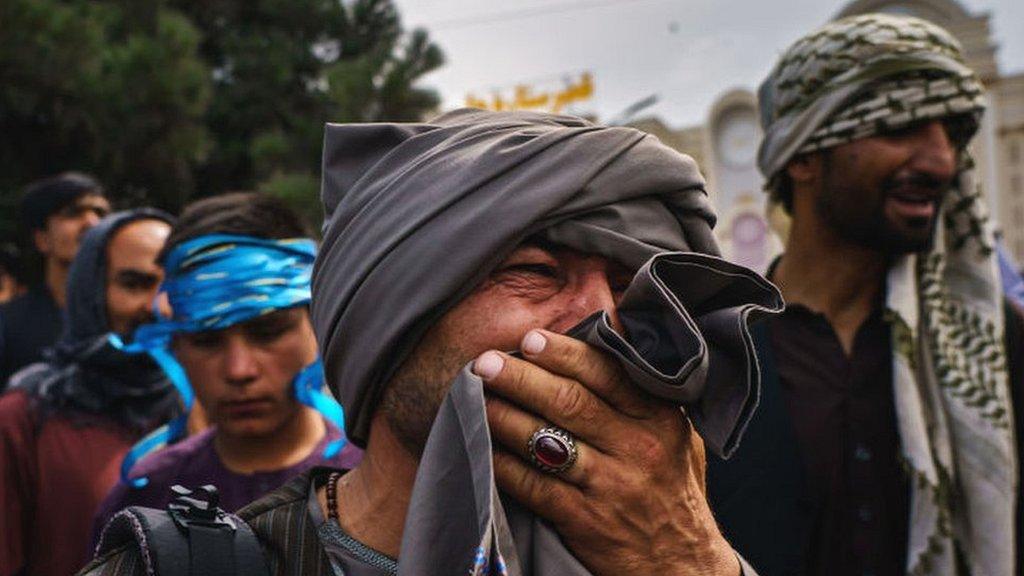
- Published18 August 2021
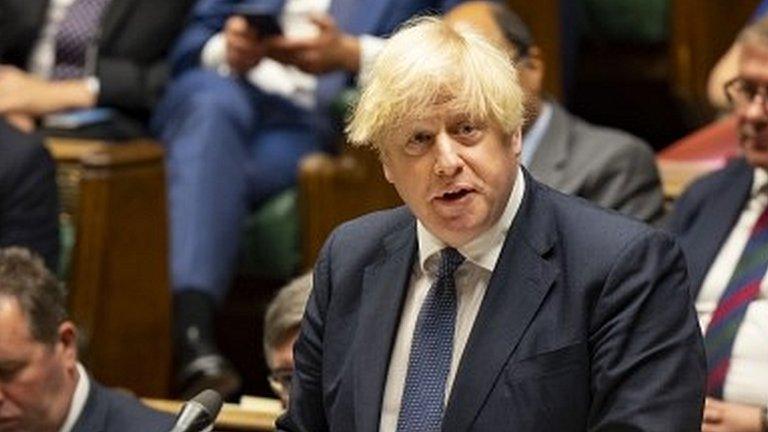
- Published18 August 2021
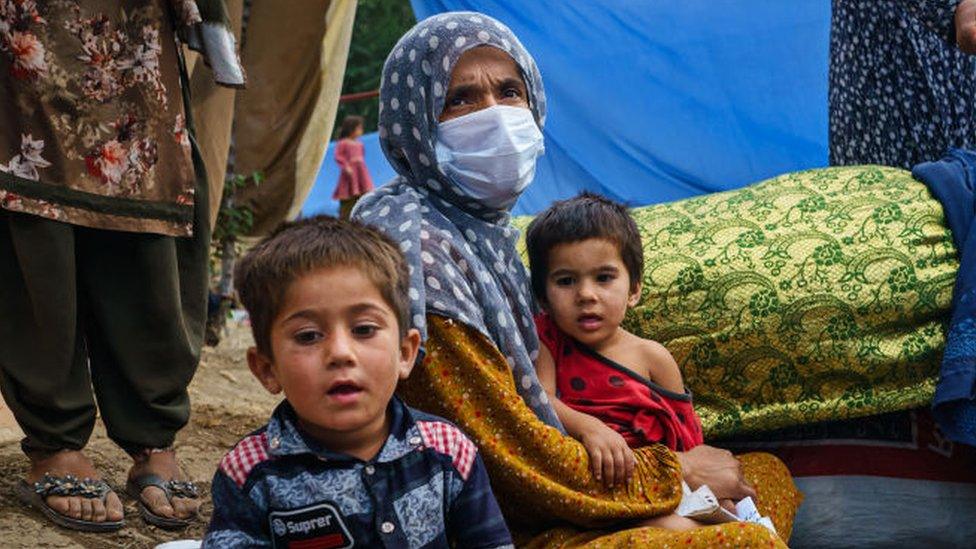
- Published18 August 2021
